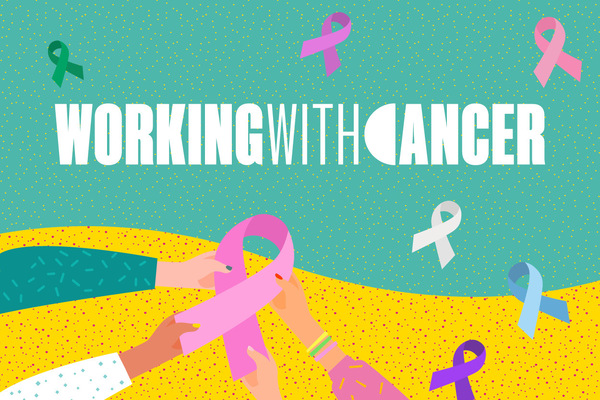Travel companies urged to offer better support for employees with cancer
 April Hutchinson
April HutchinsonCompanies in the travel industry are being urged to sign a pledge to say they will commit to offering better measures in the workplace to support people with cancer.
One in every two people will be diagnosed with cancer in their lifetime and in a week when the nation has been rocked by King Charles’ own diagnosis, a new spotlight has been thrown on cancer, including examining how employers should help team members with the disease.
Around half of those diagnosed with cancer are of working age and this, together with better treatments and improved survival rates, means employees who want or need to continue working after a diagnosis will be more common in workplaces of the future.
How to manage cancer in the workplace
Yet research by Working with Cancer, the UK’s largest dedicated supplier of work and cancer services, highlights huge gaps between what people need and what they are currently being offered by employers, with the number of people living with cancer who return successfully to work remaining “disappointingly low”.
The charity’s research also found 50% of cancer patients were worried about disclosing their condition in the workplace, and only 57% of respondents who had returned to work were aware of provisions under the 2010 Equality Act requiring employers to make ‘reasonable adjustments’ to support such a return.
‘Unique opportunity’
Now Working With Cancer’s UK ambassador Gail Kenny – who was diagnosed with breast cancer herself in 2020 – is driving a fresh focus within the travel industry for companies to sign up to the Working With Cancer Pledge.
The initiative was started a year ago by the Publicis Foundation as the first ever cross-industry coalition seeking to erase the stigma of cancer in the workplace.
There is no cost to signing up to the pledge, just a commitment to consider the issue and see how companies can “become a partner in the effort to reduce the fear cancer patients feel in the workplace and to create a culture of support for those who need it most”.
Barbara Wilson, founder and director at Working with Cancer, said: “Despite significant improvements in cancer survival, people living with cancer face enormous barriers in returning to work, as do working carers.
“Not only does this have a huge impact on people’s financial security and career prospects, it costs the global economy billions of pounds each year in lost productivity.
“The Pledge campaign provides a unique opportunity for business leaders to change their company’s policies, practices and perceptions about supporting those affected by cancer in the workplace. It will benefit their employees, their company and the wider community,” Wilson added.
Working With Cancer has set a goal of getting 24 new travel companies to sign up to the pledge during 2024.
Many major travel companies have already signed up, including founding partners such as Marriott and Accor, while other supporters in the travel sector include British Airways, American Airlines, Airbus, Air Canada, Delta Airlines, Etihad Airways, Europ Assistance Group, Hotelplan, Qantas Airways, Red Carnation Hotels and Virgin Atlantic.
TTG Media is also supporting Working With Cancer in growing awareness of the pledge, and has signed up itself. People can also demonstrate their personal support – rather than making a pledge as a business – by visiting the website to create their own #workingwithcancer badge and helping spread awareness.
“In common with many companies, we have personal experience of people receiving a cancer diagnosis among our own team and wholeheartedly support Working With Cancer and this pledge,” said Dan Pearce, TTG Media’s CEO.
“We have made a start by signing up ourselves to say we will always listen and show care for any colleagues receiving such life-changing news, and we will work with them in a way that meaningfully supports them through treatment, listening to what they need and want.”
Solid principles
According to Working With Cancer, employers “cannot rely solely on the individual compassion and empathy of managers and employees to improve the experiences of colleagues who are navigating cancer treatment and recovery”.
Instead, the guidance is to embed solid principles of job redesign (in which work tasks are re-ordered to reduce workloads or work intensity) and to instigate a phased return to work and vocational rehabilitation plans within policies and practices to ensure all employees with a cancer diagnosis (and other chronic conditions) have the best chance of thriving at work once they return.
Clinical barriers such as profound fatigue, lack of stamina, the side effects of chemotherapy or radiotherapy treatment, frequent follow-up appointments and the need to avoid infection, for example, can interrupt regular attendance at work and make sudden and unpredictable absences from work common, the report by Working With Cancer also highlighted.
Some other barriers are psychological, such as lack of confidence, low self-esteem and a fear of what the next scan might reveal or a worry that colleagues see those with cancer as a burden or unreliable. Anxiety about being shunned at work; fear over the impact on job or career prospects; and colleagues not knowing how to talk to you are other common experiences reported by those with cancer.
On the positive side, research has also shown that almost 80% of those with cancer found employers had supported them ‘very well’ or ‘quite well’ as they returned to work and almost 90% reported good support from colleagues.
But only two-thirds of respondents had a phased return to work, and almost a quarter found they had been expected to use annual leave when receiving treatment.
Sign up for weekday travel news and analysis straight to your inbox

April Hutchinson
Supplier Directory
Find contacts for 260+ travel suppliers. Type name, company or destination.












